| Weight | 151 g |
|---|---|
| Dimensions | 80 mm |
| Focal Length (mm) | |
| Max Aperture (f) | |
| Min Aperture (f) | |
| Aperture Blades | |
| Elements | |
| Sharp (Far) | |
| Rear Mount | |
| Front Thread | |
| Flange-Focal Distance (mm @ ∞) | |
| RF/L Extension (mm) | |
| Serial Numbers | |
| Production |
Agfa Color-Solagon DII 80/4.5
Six element premium ‘B-Series’ fitted to various industrial imaging devices, including enlargers. No aperture markings. Fine-pitch (0.5mm) thread. Probably rare-earth glass made by/with Steinheil.



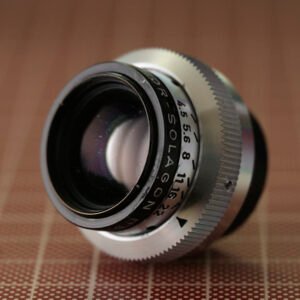
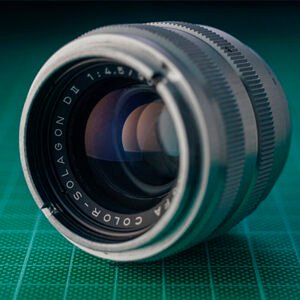
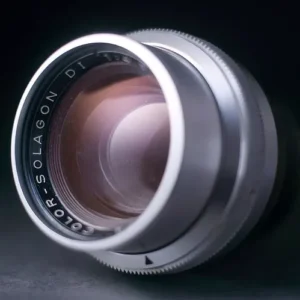
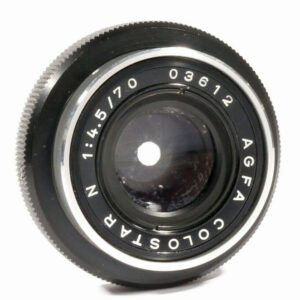
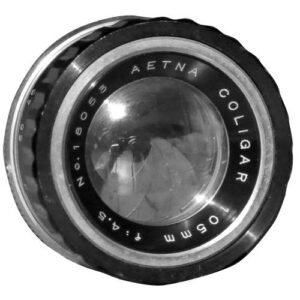
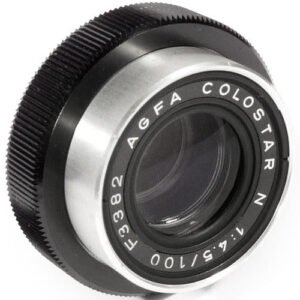

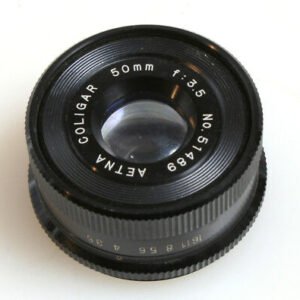
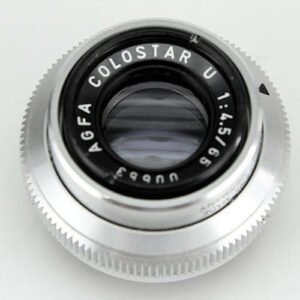



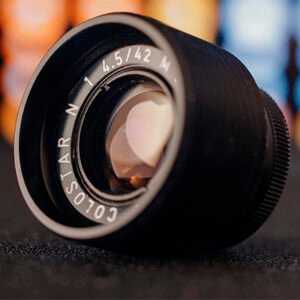


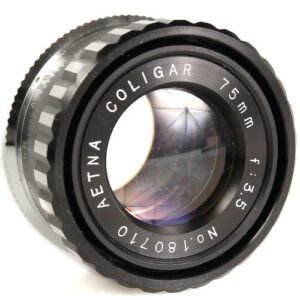


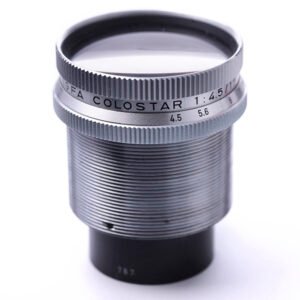

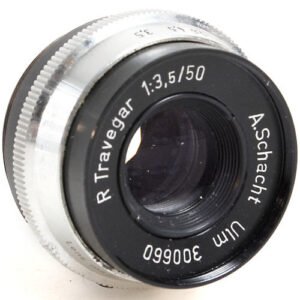
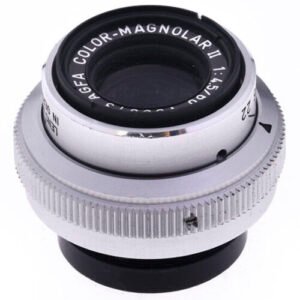
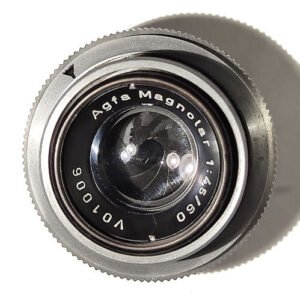
16:9 –
Agfa enlarger lenses are under-appreciated in general, but the Color-Solagons are the most criminally overlooked. Sometimes fitted to Varioscop enlargers and European minlabs, the 39mm thread is a non-standard fine pitch that (like the Corygons and Axinons) needs fettling into a standard M42 helical.
Resolution looks excellent at all apertures, in all Zones (remarkably so), at all distances on a c.40MP full frame camera. Only when exposed to the brutal demands of a 3.3 micron sensor do we see that c.80lp/mm is the limit of the Color-Solagon DII 80/4.5, and the excellence of lenses like the Apo-Rodagon, Meopta Meogon and Fujinon EX (in Zone 1, at least). At distance, there’s a noticeable drop off in performance, particularly in Zone 3, reducing the f5.6-f8 average from 88.2% to 85.8%. But in terms of sharpness, this is a lens that keeps company quite happily with the best non-Apo Schneider and Rodenstock lenses and isn’t significantly outperformed by the Gold-awarded lenses it almost deserves to join.
Contrast is a little lower than average, but it’s hard to be sure whether this was a design feature or a function of present condition, with a high incidence of fungal infestation. Evidently Agfa’s multi-coating was particularly tasty. Chromatic aberration and geometric distortion is minimal.
Anything short of a really ruined example will therefore give excellent sharpness: our renovated, but slightly coating-damaged, sample gave a near-field f5.6-8 average of 88%, with a 3.5% drop at distance – comparable to the Hoya Super EL and Minolta C.E.Rokkor – but what makes this lens so desirable is the combination of information-retrieval with truly lovely bokeh from its circular aperture. With a bit of vintage wear stirred into the mix, this lens is a powerful image-making tool with a beautiful drawing style: graceful focus transitions and truly fine-grained resolution. Given the paltry price of these once high-end lenses, it’s hard to remain unmoved by the Color-Solagon as a proposition for shooting still or moving images in 2022. Very highly recommended.